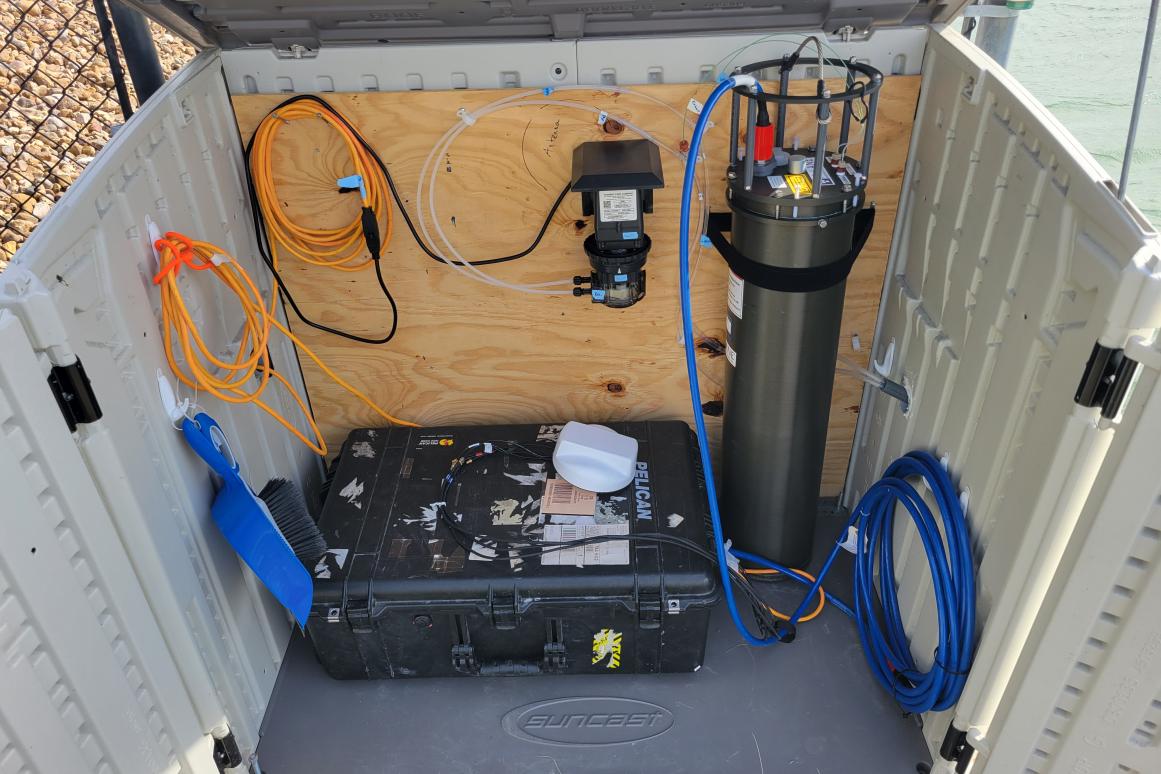1PointFive supports HRI’s efforts to protect coastal communities from harmful algal blooms
Researchers with the Harte Research Institute (HRI) at Texas A&M University-Corpus Christi are working with partners across Texas to expand a harmful algal bloom monitoring system to provide coastal communities with early warning of impending blooms. Harmful algal blooms such as “red tide” can cause mortality of marine life, negatively affect human health, and harm coastal economies.
Traditionally, monitoring for harmful algal blooms in Texas has occurred when state agencies are notified of fish kills or discolored water. HRI is deploying instruments at strategic locations along the Texas coast that are combined with artificial intelligence (AI) to detect harmful algae before they become problematic. The information allows resource managers and local officials time to let the public know in advance while also giving researchers insight into what might be causing blooms and how to contain and possibly prevent future events.
This effort was recently boosted by funding from 1PointFive, a carbon capture utilization and sequestration company, that plans to develop a Direct Air Capture Hub in South Texas. The funding will allow HRI to bring on a dedicated technician to maintain and operate the network of instruments.
“The Imaging FlowCytobots that we are deploying dramatically improve our ability to detect red tide and other harmful algae species and will help the state of Texas and coastal communities reduce risks to beachgoers and coastal economies,” said Dr. Laura Beecraft, an Assistant Research Scientist in HRI’s Coastal Ecosystem Processes lab.
The Imaging FlowCytobots run coastal water samples through an onboard microscope, takes pictures of the algae in the water sample, and uses AI to identify the harmful species that are present. HRI is currently working to set the instruments to send automated warnings to key stakeholders, including the Texas Parks and Wildlife Department’s Spills and Kills Team and Texas Department of State Health Services.
“We have had great success at acquiring funding to purchase the Imaging FlowCytobots both at HRI and with our partners at the Texas State Aquarium,” stated Dr. Michael Wetz, HRI’s Chair for Coastal Ecosystem Processes. “But we have struggled to find dedicated state or federal support for maintaining operation of the instruments that are of such vital importance to the health and economy of coastal communities. This support from 1PointFive is a major step in that direction and a gamechanger for us.”
Trey Fournier, Project Director for 1PointFive added: “We are proud to support the Harte Research Institute and their work to improve the environmental health of communities in the Coastal Bend region. Our goal at the South Texas DAC Hub is to improve quality of life and we're happy to support organizations like HRI who share that commitment.”
By the end of 2025, the goal is to have Imaging FlowCytobots fully online at the Texas State Aquarium in Corpus Christi, the Texas Parks and Wildlife Department’s facility in Port O’Connor, the Key Allegro Oyster Farm in Aransas Bay, and the Texas Parks and Wildlife Department’s hatchery in Flour Bluff.

